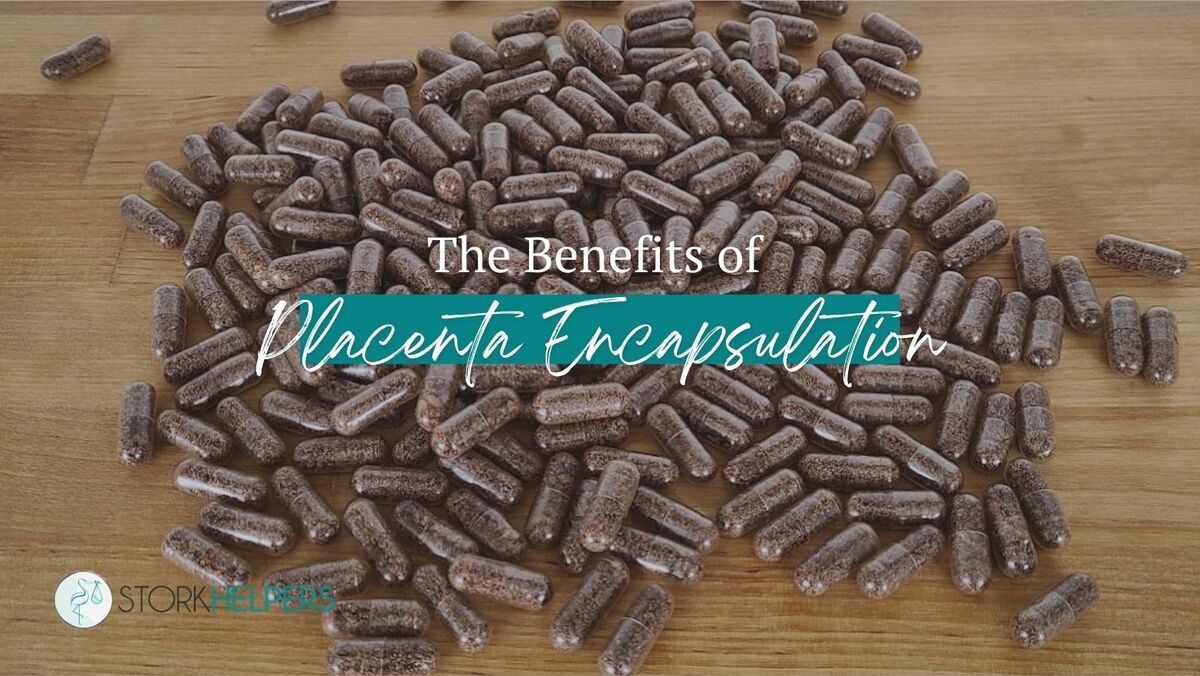The Benefits of Placenta Encapsulation

Placenta encapsulation is nothing new. The practice dates back centuries, finding its source in traditional Chinese medicine.
However, this practice is relatively new to the western world. It has gained prominence in recent years due to increased discussion in popular culture. Celebrities like January Jones and the Kardashian sisters have publicly endorsed the practice on social media.
Since the practice is so unique, many soon-to-be-mamas have wondered if placenta encapsulation is right for them.
Stork Helpers has also written a blog about nutrients found in the placenta. Be sure to check it out below:
NUTRIENTS FOUND IN THE PLACENTA
In this post, we will go over how the process works, some of the benefits of placenta encapsulation, and how to decide if it may be right for you.
How Placenta Encapsulation Works
The process of placenta encapsulation is a relatively simple one. After you give birth to your baby, a short time later you will also deliver the placenta (sometimes called the afterbirth).
The placenta is an organ that develops in your womb along with your growing baby. It serves as the main way of transferring oxygen and nutrients to your fetus. It is also the organ that removes waste from the baby’s budding body.
After the placenta is delivered, you can choose to have it encapsulated for consumption in the post-partum months.
The placenta is taken, sterilized, dehydrated, and then ground into a coarse powder. The powder is then taken and packed into a clear capsule. It will look like any over-the-counter supplement that you might take.
After that, the capsules are given to the mama to take in the months following her baby’s birth.
The Benefits of Placenta Encapsulation
Now that you know the process of placenta encapsulation, you may be wondering why you might pursue this option.
The logic behind consuming your placenta is straightforward. The placenta is an organ that is full of many different vitamins and minerals including iron, B6, and B12. Beyond that, hormones such as estrogen and progesterone are abundant.
These vitamins and hormones typically leave the mama’s body after birth. But when they are slowly reintroduced to the woman’s body, the mama can receive a natural boost.
Most other animals eat their placenta immediately after birth, but in nature humans generally do not follow this practice.
This is not to say that humans cannot eat their placenta. The truth is that many mothers (and even fathers) have tried placenta encapsulation and swear by its benefits.
Many mamas report that consuming the placenta helps ward off and fight postpartum depression. Others say that they have found milk production much easier after they have tried placenta encapsulation.
Here are some fast facts that placenta encapsulation is thought to cause:
- An increase in hormone oxytocin which helps the uterus return to normal size stops postpartum bleeding and encourages bonding with the infant
- Increases CRH, a hormone responsible for stress-reduction
- Decreased chance of postpartum depression
- Boosts mama’s energy levels
- Boosts iron in the blood
- Improve milk production
Talk to your OBGYN or doula for more information on the benefits of placenta encapsulation.
How do I Know if Placenta Encapsulation is Right for Me?
First, know that there are two methods of placenta encapsulation.
First is the raw method where the placenta is not cooked or dried before encapsulation. This method requires the capsules to be frozen and they expire one year after production.
The second is the traditional Chinese method. This is the method described above where the placenta is cleaned and dried. It is thought to be less potent than the raw form, but it lasts longer in storage. Many mamas prefer this method as they want to save their capsules for rough menstrual cycles or during menopause.
Placenta encapsulation may be right for you if you are worried about postpartum depression, have a family history of postpartum depression, or have struggled with milk production with previous children.
Ask your doula for more information about placenta encapsulation if you are wondering if the practice is right for you.
A Better Pregnancy with a Better Doula
Pregnancy is no easy feat. It is one of the hardest things mamas go through in their lives.
However, the result, a baby of your own who you can love and raise, is the greatest reward of all.
Just because it’s your pregnancy doesn’t mean you have to go it alone. Every mama needs a support net and a helping hand to guide them.
When you are looking for someone to help you weigh your options without judgment or prejudice then you need to reach out to Tamara at Stork Helpers.
Tamara has raised 7 children of her own and has cared for over 80 children over 10 and a half years.
If you need an experienced friend to help guide you through the most challenging time in your life, then don’t wait. Reach out to Tamara at Stork Helpers now!

